- Home
- J. Robert Kennedy
Sins of the Titanic (A James Acton Thriller, #13) Page 3
Sins of the Titanic (A James Acton Thriller, #13) Read online
Page 3
Yet he was involved somehow, his guilt haunting him until it finally became too much.
“I have to know.”
“No matter the consequences?”
Steve frowned, looking at his sister.
“Yes, no matter the consequences.”
North Atlantic Ocean
Aboard the RMS Titanic
April 14th, 1912
It was everything Henry Dodge could do to avoid an audible gasp. Astor had sent him the letter? It sort of made sense that he could be the source. He’d definitely have the connections and wanted to see the creation of the Federal Reserve stopped. And if he was the source, then he definitely knew about The Assembly, since they were mentioned in the letter.
He also knew they would kill should it become necessary.
Which meant he had Astor to thank for putting his life at risk.
“You’re ‘A Concerned Citizen’?” he finally managed to ask.
“Yes, but now isn’t the time to speak of such things.” He looked about. “You have the letter?”
Dodge nodded.
“On your person?”
“I fear to leave it anywhere else.”
“Good man. It is essential you deliver that letter to your father in Washington upon our arrival. He’ll know what to do with it.”
Dodge felt his chest tighten as someone approached, Benjamin Guggenheim. Astor shook his head almost imperceptibly, the man changing direction slightly, striking up a conversation with a group on another trajectory.
“Why not deliver it yourself?” asked Dodge, his voice low, mimicking Astor’s continued enjoyment of his cigar and spirits.
“They would expect me to have it, and I fully expect they will make every attempt to intercept it before I have a chance to deliver it. Hopefully you’ll succeed where I’m likely to fail.”
“But they know who I am.”
Astor paused in mid drink, his eyebrows shooting up. He lowered his glass. “Are you certain?”
Dodge nodded emphatically, catching himself, his earnestness out of place in such sedately civilized company. “Yes, two men came to my hotel but I was able to evade them. They grabbed me just as I was boarding but I managed to get away.”
Astor pursed his lips, shaking his head slightly. “I had my man deliver it. They must be watching me closer than I thought.” He looked about, the man clearly nervous. “Have you noticed anyone suspicious on board?”
Dodge smiled slightly. “Sir, I’m so on edge, I’ve convinced myself that nearly everyone here is after me.” He bowed slightly toward Astor. “Present company now excluded, of course.”
Astor smiled, returning the bow. “Of course.” He motioned toward Dodge’s pocket with his cigar. “Guard that with your life. As my note stated, they will kill for it, however once it is in your father’s hands, it will be too late. If I know him as well as I think I do, he will immediately take action, most likely reading it on the Senate floor. Once that is done, their plans will be scuttled, hopefully permanently.”
“You know my father?”
“I do have that pleasure.”
“Interesting,” murmured Dodge. This revelation meant he hadn’t been selected at random to deliver the information, but specifically because of who he was, or rather who his father was. It made him all the more determined to succeed. “Surely they couldn’t do anything to stop you, could they? You’re too, well…” Dodge wasn’t certain how to tactfully suggest the man was too powerful and wealthy to be touched.
“Untouchable?” Astor smiled slightly. “Those behind The Assembly are so well insulated from consequences, I would suggest such considerations are of no concern to them. If I were to die, no suspicions would be cast upon any of them.”
“But the documents—”
“Would be destroyed, claimed as fake should they not be.” Astor looked at Dodge. “Which is why reaching your father is so important. He is the type of man who will recognize its importance and reveal it to the world rather than stop to check its veracity, as he will know full well that there will be no way to prove it. He will recognize that the mere contents being made public will be enough to slow down the process being driven through by The Assembly, and perhaps derail it.”
“Why not arrest them? Some of their names are in the transcript.”
“What have they done wrong in this case? Is it illegal to try and make a profit on the backs of others? If it were, I’d be a poor man right now. There is a difference between being legally wrong and morally wrong, and once the Federal Reserve Act is passed, nothing they do will be legally wrong.”
“So my father is the key.” Dodge frowned. A pit formed in his stomach. “Will they try to kill him?”
Astor shook his head. “I doubt it, but he’s a wise man, he’ll take precautions. And once they are stopped…” Astor’s voice trailed off as his gaze drifted over Dodge’s shoulder. “The men who pursued you, would you recognize them?”
Dodge resisted the urge to look over his shoulder to see what Astor was looking at. “Absolutely.”
“There are two men at the far end who seem to be taking a particular interest in us. I will shift positions to allow you to see them.” Astor casually turned, his hand extending toward the other end of the room, as if commenting on the architecture. Dodge stepped forward slightly, turning back toward Astor, his heart leaping into his throat as he spotted the two men Astor had been referring to.
“That’s them,” he hissed.
“Keep calm, young Mr. Dodge. It is curious, however. I wonder how they managed to get on board.”
“Could they have snuck on?”
“I doubt that. If I had to hazard a guess, I would think they already had tickets.”
“But how? You only delivered the papers to me a few hours before the ship set sail.”
“I would suggest that these men had always intended to board.”
“But why?”
“To kill me, of course.”
Congressman Bill Mahoney’s Office
Monroe Street, Rockville
Present Day
Day of the shooting
“Thanks for doing this, Bill, it’s appreciated.”
Steve Wainwright sat across from Congressman Bill Mahoney’s large mahogany desk, the ornate, cherry stained walls and ceiling contrasting sharply with the state of the art computer equipment sitting on the man’s desk.
“No problem, Steve. I owe your son for helping me get reelected. I’m happy to make a phone call or two for the Wainwrights.” He held up a finger and hit the button to put the call on speaker.
“Congressman, sorry for the delay.”
“No problem, Jerry. Do you have what we’re looking for?”
“I’ve got Captain Wainwright’s record up on the screen. It’s just archival scans, it hasn’t been computerized, but you’re right, part of it is redacted for some reason.”
“I could see that during wartime, but this was pre-World War One.”
“I know. Let me check something. They’ve been digitizing the assignments, maybe we’ll get lucky.” The sound of fingers tapping on a keyboard came over the speaker, Steve feeling his stomach squirm with anticipation, not sure of what to expect. “Oh shit.”
“What?” asked Mahoney, leaning closer to the phone.
“I don’t know, my computer is shutting down and there’s some sort of security alert telling me to stay where I am.”
Mahoney and Steve exchanged worried glances. “What did you do?”
“Based on our conversation, I just typed in Wainwrights name and the word Titanic.” There was a pause. “Oh shit! I’m royally screwed, I shouldn’t have done this!”
“Listen, just tell them I’m the one who asked you to do the search. I’ll do everything in my power—”
There was a click then a dial tone.
Steve looked at Mahoney. “What the hell just happened?”
Mahoney shook his head, ending the call. “I don’t know, but something tells me someo
ne doesn’t want us looking into what your grandfather did.”
“And it has something to do with the Titanic.”
And the very thought of it made him sick with worry.
North Atlantic Ocean
Aboard the RMS Titanic
April 14th, 1912
“Captain, there are reports of icebergs along our course.”
Captain Edward Smith looked at Chief Mate Henry Wilde, taking the communication from the radio room. He read them over, his chest tightening slightly. He was under tremendous pressure by corporate head office to set a transatlantic crossing record on this maiden voyage, though he would not do so at the risk of the ship and its passengers.
He handed the paper back, a wave of guilt washing over him, a cold sweat breaking out on his forehead and back. “Continue at current speed.”
Wilde stepped slightly closer, lowering his voice so the rest of the bridge couldn’t hear their conversation. “Captain, surely head office would understand if we didn’t succeed. Icebergs, especially at night, aren’t to be trifled with.”
Captain Smith glanced at his Chief, desperate to tell him the truth, yet held his tongue. “As you were, Chief.”
Wilde snapped to attention as if he were aboard a military vessel then walked away, his troubled expression clearly indicating he wasn’t happy with the decision.
He’ll report me, for sure.
Smith took in a deep breath, his chest swelling as he tried to force some courage into his butterfly filled stomach.
As he should.
But Sarah and our daughter will be safe.
He turned and headed for his cabin, closing the door behind him and taking a seat in his chair. He picked up a photo of his family, a lump forming in his throat.
He didn’t know who they were, but two men had arrived at the White Star Lines offices only minutes before he was due to leave for the ship. They had a handwritten note from his wife and a clipping of his daughter’s hair.
And a request that, should it be ignored, would result in him never seeing them alive again.
He had belted the one closest him, but a gun cocking behind him had ended his fight and he had been rewarded with a fist to the midriff. He rubbed his stomach, the muscles still tender.
The “request” had been simple.
Make all haste to a set of coordinates provided him on a piece of paper, it along his route therefore no course deviation necessary. He was then to do something he couldn’t understand at the time.
He was to come to a complete stop.
And wait fifteen minutes.
Then resume his voyage, again at best speed.
He would still set the record, an entry would be made in the log that they had stopped because something had been spotted in the water, something that would turn out to be nothing, and no one would be the wiser.
Wiser of what was his question.
He had been rewarded with a second blow.
Questions weren’t to be tolerated.
Nor failure.
He had to make the rendezvous coordinates on time or his family died.
Rendezvous coordinates.
That must be what they were. There could be no other possible explanation. He could see no reason to stop in the middle of the North Atlantic for fifteen minutes then resume course. It made no sense unless it was a rendezvous.
But rendezvous with whom?
Assembly Covert Communications Facility, Moscow, Russia
Present Day
“There’s been activity concerning the Titanic operation.”
Ilya Mashkov’s eyebrows rose slightly at the revelation. The meeting of The Assembly had been hastily called, an unusual though not rare occurrence. The interests of their organization were varied involving most countries of the world, from private industry to government procurement, from influence peddling to the very administrations themselves.
The Assembly was all powerful.
It was the grand conspiracy that the tinfoil hat crowd whined of, yet were still so wrong about. Illuminati, Masons, Triarii, Rosicrucians. They were all real enough, but the power they wielded paled in comparison to The Assembly.
Because it was small.
Twelve individuals sat on the ruling council. Never any more, and only less until a replacement was found. And even then the process could take time. He had been invited in six years ago after his predecessor had died from a bullet to the head.
Who delivered that bullet, he didn’t know, though he suspected it was on the orders of the people whose silhouettes were now on screens in front of him. He knew nothing of them. Who they were, where they were, what they looked like, though he could surmise in some cases from the tasks they volunteered to undertake. Since he had been selected by them, he was quite certain they knew who he was, and it was his guess that the oldest member knew who everyone was, one of the benefits of longevity in an organization that appeared to tolerate little in the way of failure.
Dozens had been murdered since he had joined.
He had little problem with that. The common man wasn’t their target, it was the uncommon man. Men and women who had gained power of some sort that wouldn’t bend to the will of The Assembly when needed, or threatened their desires.
The Assembly could be subtle. Usually the best interests of The Assembly were also in the best interests of those in control. A CEO usually wanted the same thing, a head of state as well.
But occasionally those interests diverged, and that was when pressure needed to be exerted. Sometimes subtle, sometimes not so subtle. And on occasion, violence was necessary, though it rarely came to that. Usually what was required could be attained through political favors or disruption of a corporation’s money supply.
Control of banks was key, especially central banks.
Sometimes this influence resulted in strange results. Pipelines not built for environmental reasons, yet Arctic drilling approved. Things that simply made no logical sense. Until you drilled down to the real reason. In The Assembly’s case, the Artic didn’t have railways, and it was far more profitable to transport oil by rail, if you owned the railway.
But oil was merely one of many economic pies they had their hands in.
The real money was in banking.
And arms.
A slightly unstable world was always more profitable than a stable one. A planet at peace with itself could spell economic disaster, history itself being the lesson there. After World War One, the world was weary of war, and that weariness grew into complacency and the false belief that the “war to end all wars” was actually in fact that. The result? The Great Depression.
World War Two brought the world out of the worst economic decline in modern times and led to an economic boom. The end of the war though didn’t mean the end of the need for massive arms spending. Korea, Vietnam and the Cold War fueled spending the world over, which kept economies expanding, technology advancing, quality of life improving.
For those on the winning side.
And The Assembly was always, ultimately, on the winning side.
The end of the Cold War was supposed to bring a “peace dividend” that never really materialized, yet did lead to a weakening of most major armed forces in the world with the exception of China. Bringing back an external threat had been of key importance. Terrorism had helped, allowing for massive investments in security through fueling paranoia on the home front, whether that be airport scanners that could see through clothing, to the militarization of the police forces by letting them purchase army surplus equipment. And Russia’s resurgence due to their oil reserves had done wonders, with the military leaders of the Western world realizing that the Cold War wasn’t yet over.
All of which meant The Assembly would continue to rake in the money, wielding power over men and women the world over, none with any inkling what was actually happening.
And the beautiful thing, as he had discovered, was that mankind was screwed up enough to actually bring most of what happened
upon itself.
The Assembly didn’t fly planes into the Twin Towers.
The Assembly didn’t create ISIS.
The Assembly was merely there to capitalize on these events, and profit from them, as they slowly guided the entire planet toward some end game he hadn’t yet been made privy to, and wasn’t sure if he ever would.
They were only twelve people, though their organization was much more, though nobody knew who they worked for. Everything was done through private contractors, some like BlackTide that were now defunct after their failure, others too tightly controlled to ever be known to the public.
If The Assembly wanted something done, their hands were never soiled, there never a possibility of anything being traced back to the organization.
Yet now it appeared something was wrong.
Titanic?
“Forgive me, since I’m new, I’m not familiar with our involvement with the Titanic.”
“What our involvement was is of no importance however a file will be provided. What is important is the fact someone is beginning to ask questions about a naval officer involved.”
“Who?” asked one of the others.
“Captain Johnathan Wainwright. He committed suicide in 1940, but it appears someone is asking questions and may have found a link to the Titanic operation.”
Mashkov felt his chest tighten slightly. He hated not knowing what was going on, and it was as if the others took delight in making it clear that he was the only one who was out of the loop.
Or were they just as much in the dark as he was?
Only two people seemed to be talking, the others all silent.
Better to remain silent and be thought a fool than to speak out and remove all doubt.
It was one of his favorite Abraham Lincoln quotes that too many politicians today seemed to not heed.
Tipping islands, anyone?
And he’d be a fool himself to ignore the sage advice.
He listened.
“I thought with his suicide we’d be done with the affair. There are no longer any survivors from that era. What makes you think there’s a problem?”

_preview.jpg) The Protocol (A James Acton Thriller, Book #1)
The Protocol (A James Acton Thriller, Book #1)_preview.jpg) Depraved Difference (A Detective Shakespeare Mystery, Book #1)
Depraved Difference (A Detective Shakespeare Mystery, Book #1)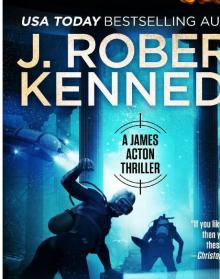 Atlantis Lost
Atlantis Lost The Tomb of Genghis Khan
The Tomb of Genghis Khan_preview.jpg) Rogue Operator (A Special Agent Dylan Kane Thriller, Book #1)
Rogue Operator (A Special Agent Dylan Kane Thriller, Book #1)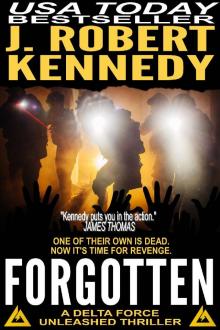 Forgotten
Forgotten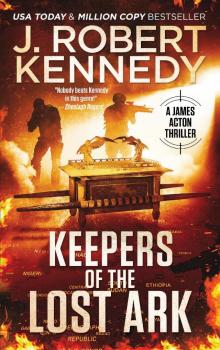 Keepers of the Lost Ark
Keepers of the Lost Ark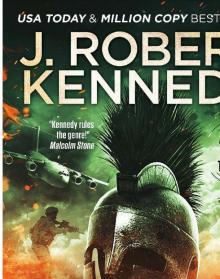 The Cylon Curse
The Cylon Curse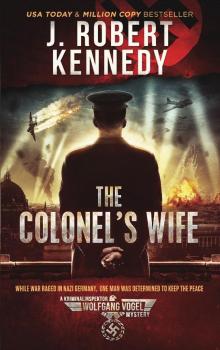 The Colonel's Wife
The Colonel's Wife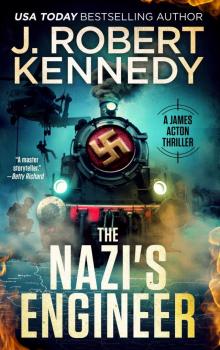 The Nazi's Engineer
The Nazi's Engineer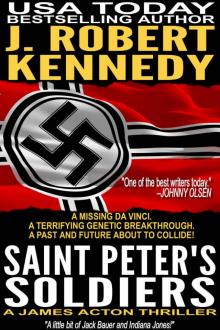 Saint Peter's Soldiers (A James Acton Thriller, Book #14)
Saint Peter's Soldiers (A James Acton Thriller, Book #14)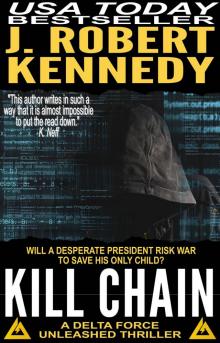 Kill Chain
Kill Chain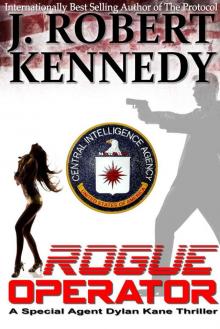 Rogue Operator
Rogue Operator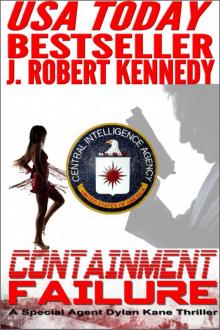 Containment Failure (A Special Agent Dylan Kane Thriller, Book #2)
Containment Failure (A Special Agent Dylan Kane Thriller, Book #2) The Lazarus Moment
The Lazarus Moment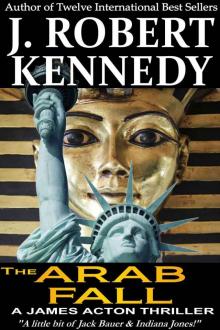 The Arab Fall (A James Acton Thriller, Book #6) (James Acton Thrillers)
The Arab Fall (A James Acton Thriller, Book #6) (James Acton Thrillers) Payback
Payback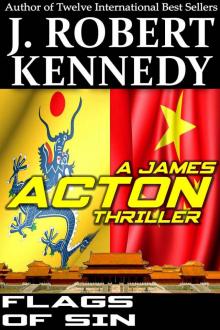 Flags of Sin - 05
Flags of Sin - 05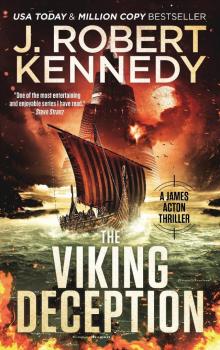 The Viking Deception
The Viking Deception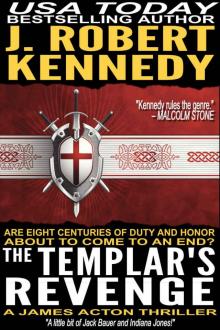 The Templar's Revenge (A James Acton Thriller, #19) (James Acton Thrillers)
The Templar's Revenge (A James Acton Thriller, #19) (James Acton Thrillers)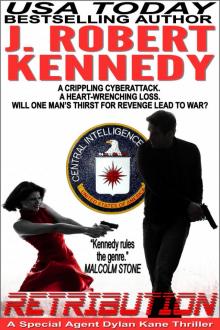 Retribution - A Special Agent Dylan Kane Thriller Book #7
Retribution - A Special Agent Dylan Kane Thriller Book #7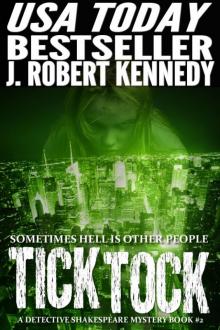 Tick Tock (A Detective Shakespeare Mystery, Book #2)
Tick Tock (A Detective Shakespeare Mystery, Book #2) Blood Relics (A James Acton Thriller, #12)
Blood Relics (A James Acton Thriller, #12) The Templar Detective
The Templar Detective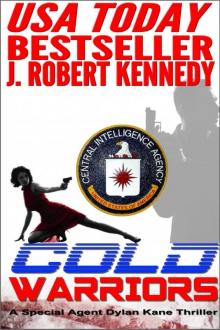 Cold Warriors (A Special Agent Dylan Kane Thriller, Book #3)
Cold Warriors (A Special Agent Dylan Kane Thriller, Book #3)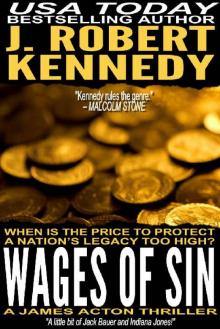 Wages of Sin (A James Acton Thriller, #17) (James Acton Thrillers)
Wages of Sin (A James Acton Thriller, #17) (James Acton Thrillers) The Templar Detective and the Parisian Adulteress
The Templar Detective and the Parisian Adulteress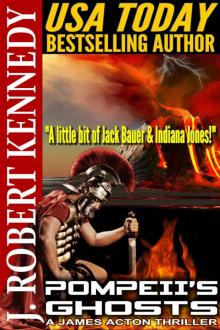 Pompeii's Ghosts (A James Acton Thriller, #9)
Pompeii's Ghosts (A James Acton Thriller, #9) Raging Sun (A James Acton Thriller, #16) (James Acton Thrillers)
Raging Sun (A James Acton Thriller, #16) (James Acton Thrillers)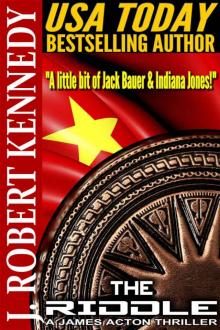 The Riddle (A James Acton Thriller, Book #11)
The Riddle (A James Acton Thriller, Book #11)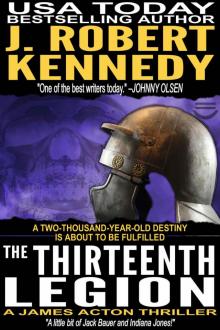 The Thirteenth Legion (A James Acton Thriller, #15) (James Acton Thrillers)
The Thirteenth Legion (A James Acton Thriller, #15) (James Acton Thrillers)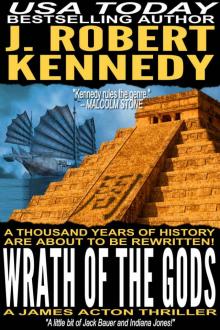 Wrath of the Gods (A James Acton Thriller, #18) (James Acton Thrillers)
Wrath of the Gods (A James Acton Thriller, #18) (James Acton Thrillers)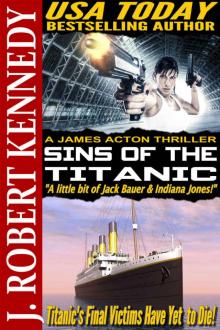 Sins of the Titanic (A James Acton Thriller, #13)
Sins of the Titanic (A James Acton Thriller, #13)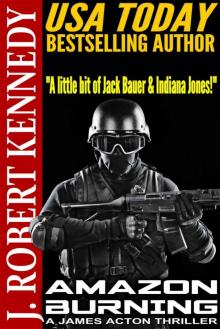 Amazon Burning (A James Acton Thriller, #10)
Amazon Burning (A James Acton Thriller, #10)